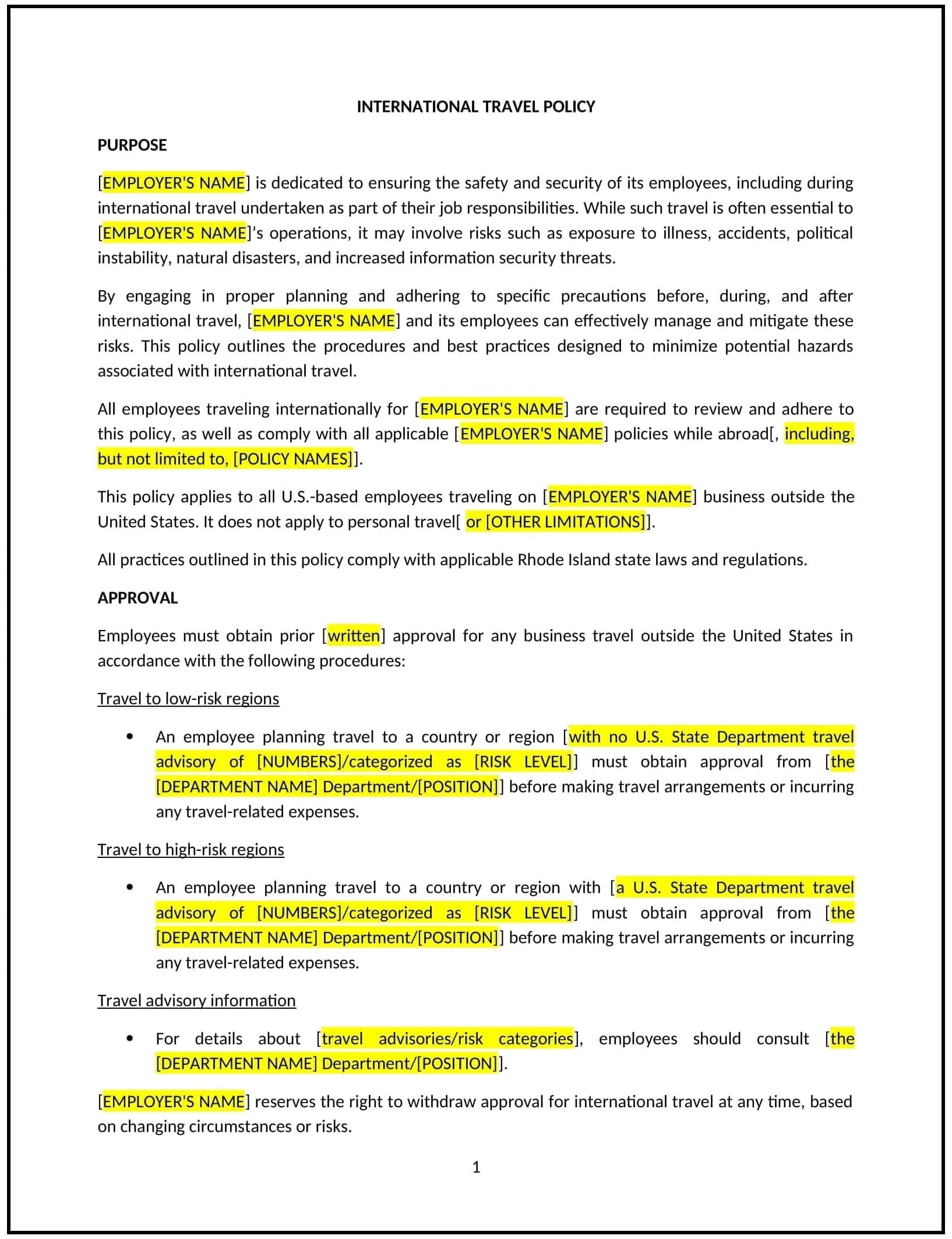International travel policy (Rhode Island): Free template
Got contracts to review? While you're here for policies, let Cobrief make contract review effortless—start your free review now.

Customize this template for free
International travel policy (Rhode Island)
This international travel policy is designed to help Rhode Island businesses establish guidelines for employees traveling abroad for work. It outlines procedures for travel approvals, expense reimbursements, and safety protocols.
By adopting this policy, businesses can ensure smooth international travel, protect employee well-being, and manage travel-related risks effectively.
How to use this international travel policy (Rhode Island)
- Define scope: Clarify which employees are eligible for international travel and the types of trips covered.
- Establish approval process: Outline steps for requesting and approving international travel, including required documentation.
- Set expense guidelines: Specify which travel expenses are reimbursable and the process for submitting claims.
- Address safety protocols: Provide guidelines for employee safety, such as travel insurance and emergency contacts.
- Communicate expectations: Share travel expectations with employees, including behavior and compliance with local laws.
- Train managers: Educate supervisors on handling travel requests and supporting employees during trips.
- Review and update: Assess the policy annually to ensure it aligns with evolving business needs and travel regulations.
Benefits of using this international travel policy (Rhode Island)
This policy offers several advantages for Rhode Island businesses:
- Ensures smooth travel: Provides clear guidelines for planning and approving international trips.
- Protects employee well-being: Prioritizes employee safety and support during travel.
- Manages risks: Reduces legal, financial, and reputational risks associated with international travel.
- Controls costs: Establishes clear expense guidelines to manage travel budgets effectively.
- Enhances productivity: Helps employees focus on work during trips by addressing logistical concerns in advance.
Tips for using this international travel policy (Rhode Island)
- Communicate the policy: Share the policy with employees and include it in the employee handbook.
- Provide training: Educate managers and employees on travel procedures and safety protocols.
- Monitor compliance: Regularly review travel requests and expenses to ensure adherence to the policy.
- Address issues promptly: Take corrective action if travel guidelines are not followed or issues arise during trips.
- Update regularly: Assess the policy annually to ensure it aligns with evolving business needs and travel regulations.